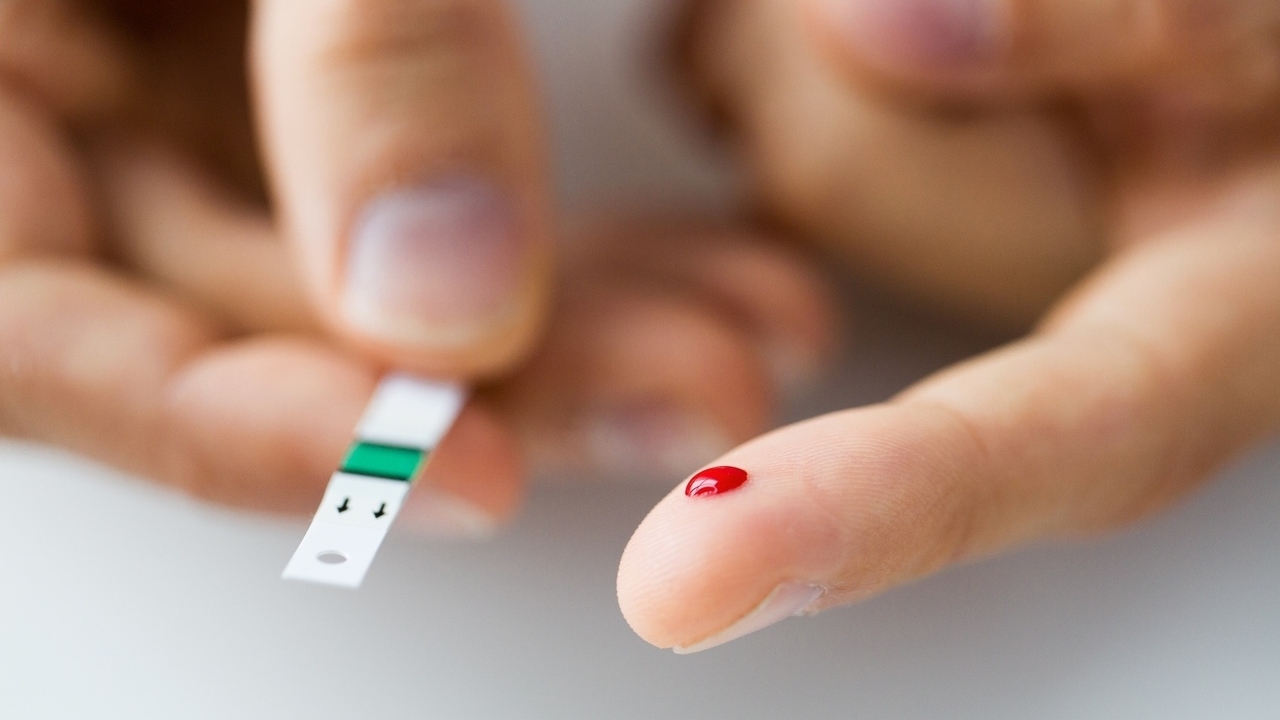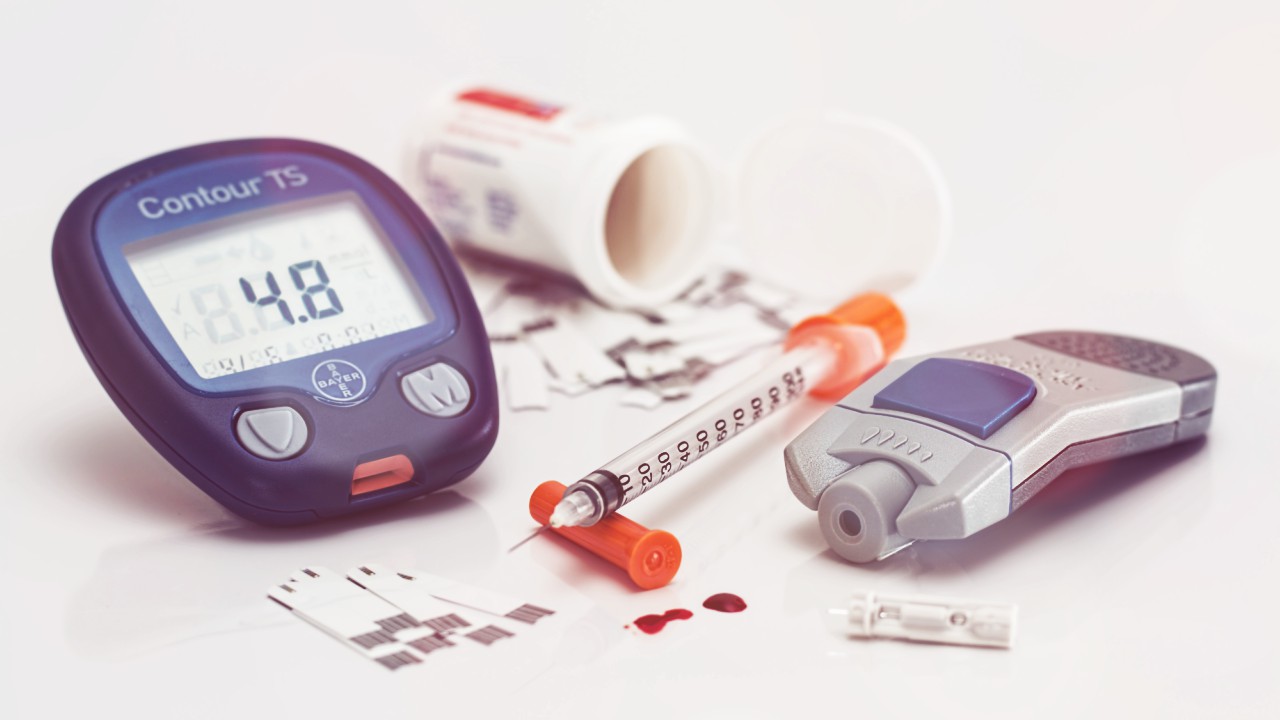For some time, doctors have known that consuming high fructose corn syrup can lead to diabetes. But a recent study on animals discovered details as to how. And it’s not pretty.
Diets rich in fructose have been linked to insulin resistance which has been identified as a precursor to Type 2 diabetes. The study, reported in the Cell Metabolism Journal, has singled out a specific gene, PGC-1 beta, that seems to respond to fructose by developing insulin resistance.
The researchers used rats in the study and found blocking that gene’s activity in rats that consumed high levels of fructose protected them from insulin resistance.
High-fructose corn syrup has been getting a bad rap lately thanks to studies linking the chemical to soaring obesity rates. The corn sweetener was virtually nonexistent 30 years ago. But since the 80s, it’s quickly become an ingredient in everything from sodas to cereals and is also used as a preservative.
A University of California study last year found that high fructose consumption leads to increased fat around the organs, which causes a pot-belly, as well as greater risk of diabetes, cardiovascular disease, and high levels of fatty triglycerides (a form of fat in the blood associated with heart disease). While glucose causes an equivalent weight gain, it does did not produce the same effects.
The hope is that this new research opens the door to new ways of treating several conditions brought on by too much fructose consumption, including insulin resistance, fatty liver disease, and high triglycerides.
Technically, those ads by the Corn Refiners Association are right: High fructose corn syrup is chemically much like sugar, or sucrose. HFCS works like this. The body breaks it down into fructose and glucose. Table sugar, or sucrose, also breaks down into the same two sugars, but slightly lower fructose to glucose ratio. HFCS is also not very different from table sugar when it comes to insulin resistance.
But, the problem with high-fructose corn syrup is two-fold. First, unlike glucose, which is metabolized several different ways, fructose is only metabolized by the liver. When the liver gets too much sugar, the excess is turned into fat.
Secondly, as with any sugar, it’s only recommended in low doses. But with HFCS in many grocery store items not traditionally considered sweet, like crackers, and the average American consuming 12 teaspoons per day, how are we supposed to consume it at moderate levels? Compounding the over-consumption issue is the fact that fructose fails to stimulate insulin production which leads to low levels of leptin, a hormone that tells us when we’re full. Without appropriate levels of leptin, we may still feel hungry after eating hundreds of calories from fructose, and continue to consume even more.
HFCS is not nearly as widely used in Europe or elsewhere as it is in the U.S. Pepsi is even responding to the backlash by temporarily issuing a new line of soft drinks sweetened with natural sugar in April.





Add a Comment14 Comments
Hey Liz,
What about this Princeton study? http://www.princeton.edu/main/news/archive/S26/91/22K07/ “A Princeton University research team has demonstrated that all sweeteners are not equal when it comes to weight gain: Rats with access to high-fructose corn syrup gained significantly more weight than those with access to table sugar, even when their overall caloric intake was the same.
In addition to causing significant weight gain in lab animals, long-term consumption of high-fructose corn syrup also led to abnormal increases in body fat, especially in the abdomen, and a rise in circulating blood fats called triglycerides. The researchers say the work sheds light on the factors contributing to obesity trends in the United States.”
I have access to Medline. I could probably find you more if you don’t find Princeton a valid source of info.
May 16, 2010 - 7:46amThis Comment
This is great information. I'm confused about why fructose is bad, but isn't this the sugar that is naturally found in some fruits and vegetables? Is there a difference?
March 24, 2009 - 2:25pmThis Comment
http://www.sciencedaily.com/releases/2008/10/081016074701.htm
March 30, 2009 - 4:13amThis Comment
Hi Liz,
March 24, 2009 - 10:55amThe CRA can't hide the math! Take the variant HFCS-55. Although its
composition (55%fructose:45%glucose) appears to be 5% different than
sucrose 50:50), when you do the math a significant difference emerges.
55/45=1.22. That means that everytime you drink a soda with HFCS-55 your
liver is receiving, compared to glucose, 22% extra fructose. Metabolic
dangers of excess fructose have been well documented as commented by DianeP. Ditch HFCS, especially HFCS-55 which is used to sweeten many
beverages. StopHFCS.com has an extensive list of HFCS-free foods and beverages. To your health.
This Comment
Hi, my name is Liz and I work for the Corn Refiner’s Association. I wanted to share some information about High Fructose Corn Syrup.
There is no scientific evidence to suggest that high fructose corn syrup is responsible for diabetes. All caloric sweeteners trigger an insulin response in the body. In fact, table sugar, honey and high fructose corn syrup trigger about the same insulin release, because they contain nearly equal amounts of fructose and glucose. The American Medical Association (AMA) recently concluded that “…high fructose corn syrup does not appear to contribute to obesity more than other caloric sweeteners…”
For the most part, you'll find high fructose corn syrup in the same kinds of products in which you would find sugar or other sweeteners. At the same time, corn sweeteners offer some unique functional benefits that help companies offer more choices in food products.
There’s a lot of solid research and information at www.SweetSurprise.com and www.HFCSFacts.com. Or if you'd like a third party refernce, check out this article from the New York Times: Sweetener with a Bad Rap: http://www.nytimes.com/2006/07/02/business/yourmoney/02syrup.html?_r=1&oref=slogin
Thank you for your consideration.
March 20, 2009 - 8:18amThis Comment
Hi Liz, I'm sure you would be horrified if the company you worked for asked you to enslave little children, then blind them and cut off their legs, and then torture them to death.
August 6, 2011 - 10:46amHowever, when people get diabetes, this often happens--only it may take many years of suffering. I have witnessed this in friends and relatives.
High fructose corn syrup is an unbound sugar like nothing else in nature--and has been synthesized from genetically altered corn that is rift with pesticides and chemicals, and has no real nutrition--and worse--it appears to be addictive. This artificially produced product does not help the body. Children become enslaved to this poor nutrition, and become fast food eating adults who may die of diabetes related complications.
Liz, so in a since, you really are working for such an organization--only the slavery is much more insidious and deceptive, and the suffering takes so much longer.
As Americans, we have a choice in our eating habits. We can choose to not be enslaved by the fast food and chemical industry. As a teacher, I am alarmed at what is happening to the eating habits of school children. I choose to point out such corporate food slavery and deceptions. For example, the American Dietetic Association has soft drink, candy, and snack food corporations as sponsors. Check it out:
http://www.eatright.org/corporatesponsors/
Remember, the corn refiners recommend on their ads for mothers to give their children that artificial red drink.
And Liz, as ethical human beings, we can choose who we work for.
This Comment
Hi Liz,
My name is Ken.
HFCS nearly killed me. I don't want to go into the details because I hate typing, the short of it is my liver was nearly destroyed and I now have Diabetes.. Since removing HFCS from my diet, I've lost 89 lbs, I am 6'5" my weight is now around 200 lbs.. I enjoy a soda a few times a week, Jones cola, with Sugar and Mexican Coke. The odd thing is, if I drink a Sugar soda, my sugar goes up as you'd expect it to then it comes promptly back down. when I drink a soda with HFCS, my sugars are out of whack for days.
You can take your propaganda and stuff it. HFCS is toxic. It is an artificial sweetener and should be removed from the market.
March 22, 2009 - 1:20pmThis Comment
Thanks so much for the comment. I didn't personally feel the need to reply to Liz because I understand what she does and what she represents. The Corn Refiners Association have big money and resources on their side, and much of what they say is true. But it's only half the story.
March 22, 2009 - 1:59pmThanks for filling us in on the other half with your story. Drinking soda with regular sugar SHOULD cause those spikes in blood sugar levels. I would even venture to say that this may be our bodies' way of telling us to regulate consumption. Heavily processed foods often leave us, as you said, "out of whack" and unable to determine what's going on with our bodies. It's a shame that consumers have to go out of their way, and often pay more money, to access real food.
I'm glad to hear you're in good shape!
This Comment
Great articles. This is a very important issue, and it's time we used science to stop the excessive use of high fructose corn syrup. Diabetes is such a huge problem with Americans. Thanks very much.
Lance Winslow
March 17, 2009 - 11:12pmThis Comment
One of the underlying reasons for the heavy increase in the amounts of HFCS in our foods (and even in pet foods, which is ridiculous)is the government corn subsidies. Since the 1990s, the government has paid more than $40 billion to corn growers. That's a lot of money (even if it doesn't seem like such a big number in this age of bailouts) and an even larger amount of corn being processed into HFCS. A subsidy for one product (as well as tariffs and quotas on importers) can discourage a farmer from planting anything else.
Here's a thorough primer on HFCS and the details surrounding how it's processed in the body in comparison to other sugars:
http://en.wikipedia.org/wiki/High_fructose_corn_syrup
Medical doctor Dana Flavin is head of the Foundation for Collaborative Medicine and Research. She worked in the foods division at the FDA when corn syrup was just becoming popular. She wasn't concerned about it until she was doing research for an article in Life Extension magazine, "The Metabolic Dangers of High Fructose Corn Syrup."
As someone who habitually read scientific literature, Flavin said she was shocked. "I was floored because I didn't want to believe it. And I'm a toxicologist from FDA and a physician. And I'm thinking, 'Oh, this is ridiculous, this is just corn syrup. I wish it were just corn syrup and were just that simple, but it's much more complicated."
To read more:
March 17, 2009 - 8:55amhttp://www.cbn.com/cbnnews/533279.aspx
This Comment